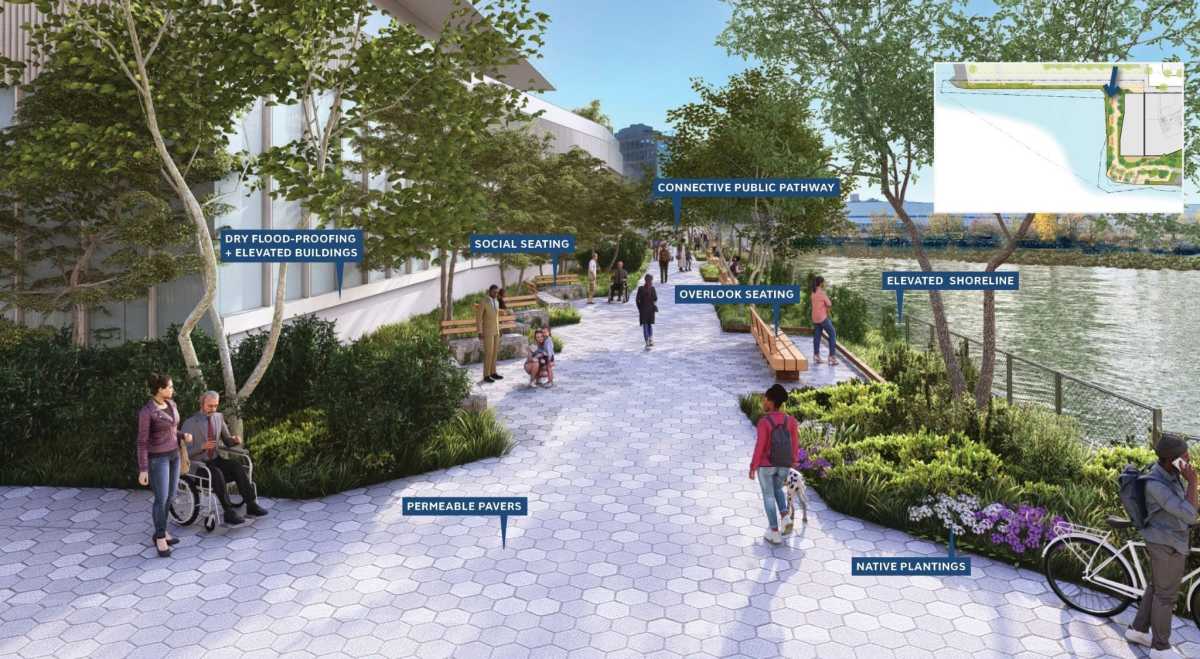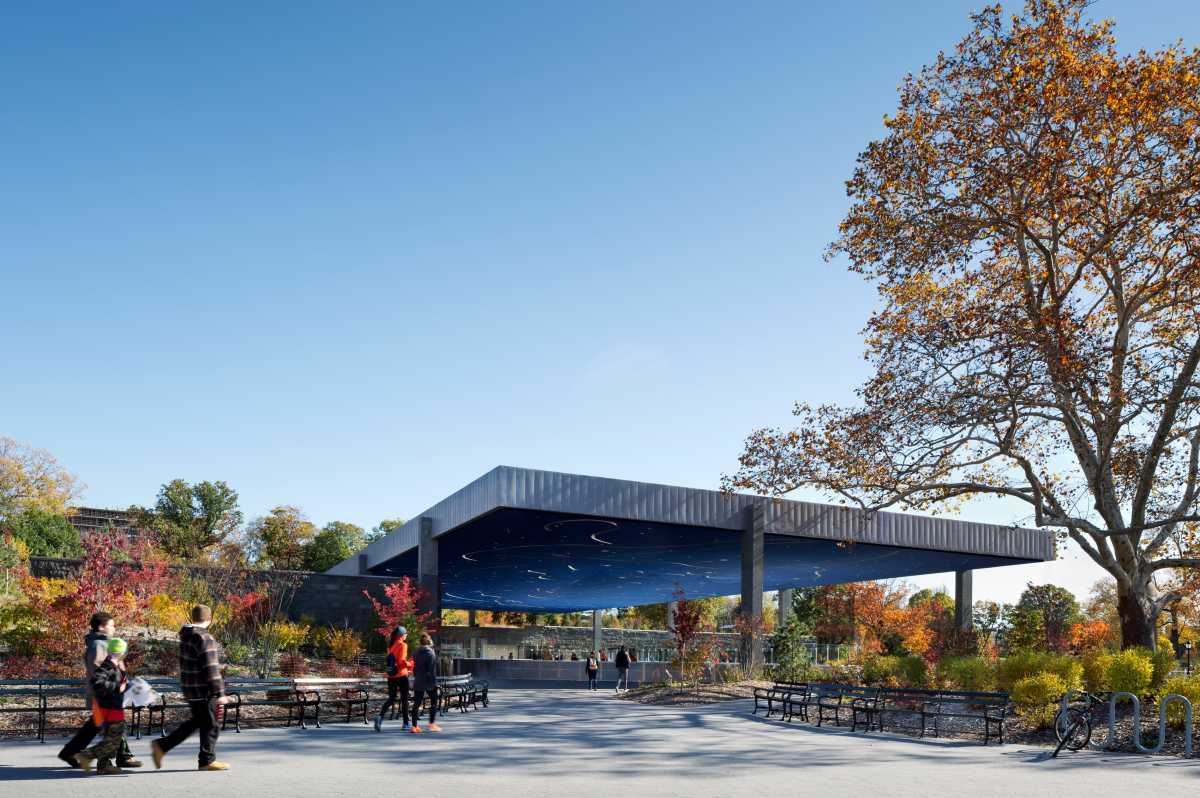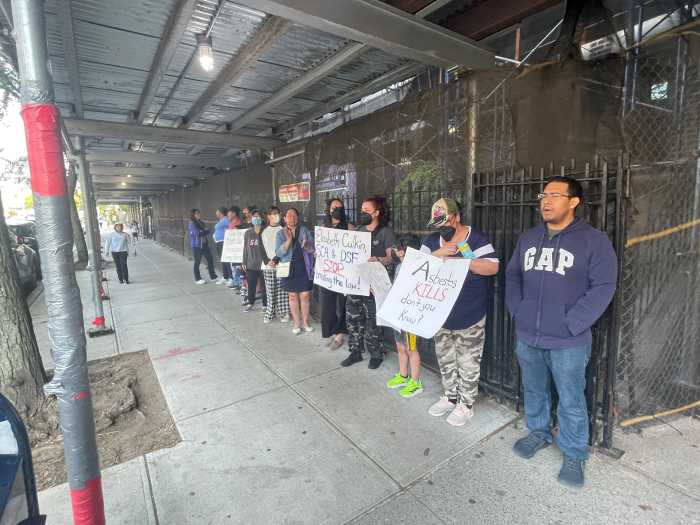
A building management team in East New York told tenants keys would not be an option once a biometric facial scanning security system is installed, their attorneys said.
Residents of a Hell’s Kitchen loft are in court seeking mechanical keys to the main lobby, their sole path to the elevator. And on the Upper West Side, a tenant said she and her neighbors feared the landlord would transition away from the traditional lock system.
Residential buildings are considering technology that promises quick, convenient entry for tenants and their guests with biometrics, facial recognition, phone apps and personalized codes, but a traditional method is still required by city rules.
The city Department of Buildings says it is not aware of any instances of buildings having improperly required residents to rely on novel technology. But some New Yorkers say their landlord has broached the idea of relying solely on modern entry systems, prompting privacy concerns and questions about the technology’s accuracy. Lawmakers at the city and state level are looking to draft guidelines on how these systems collect and use data.
"It’s fundamentally inappropriate for anyone to be told that a condition of living somewhere is giving up their data," said Lee Rowland, policy director at the New York Civil Liberties Union. "It is a problem that state law, that local laws do not clearly prohibit landlords from using their tenants as a source of data."
Gov. Andrew Cuomo’s and Mayor Bill de Blasio’s offices did not immediately respond to a request for comment.
The city Department of Buildings has no rules preventing landlords from installing technology that unlocks doors by scanning faces or fingerprints or by recognizing phones or personal codes, according to spokesman Andrew Rudansky. But such systems may not replace a key-based tool, according to Rudansky. Fobs, cards and metal instruments that fit in mechanical locks are classified as keys, under DOB protocols.
Rudansky said the department has not received an application for new buildings or for remodeling work that proposes a residence use only an alternative to a key system. He said the department can respond to complaints about apartments skirting the requirement to physically include a traditional setup, but disputes between landlords and tenants about whether keys for that tool will be available are generally matters for Housing Court.
Residents of lofts in Hell’s Kitchen have filed a lawsuit accusing their landlord of diminishing services by refusing to provide them with mechanical keys to the main lobby, the only place they can get to an elevator. They have been relegated to entrances with stairs that lead to the back doors of their homes since September 2018, when the landlord, 517-525 West 45 LLC, installed Latch, according to court documents.
Latch, which is set up in 1,000 buildings across the city, allows users to enter with a mobile app, card or personal code and may be used alongside a mechanical system.
The tenants, however, said in court papers that they would have had to register with Latch’s app to get a code or card, which they said would have provided personal information to Latch, which had the right to "exploit" it.
Latch CEO Luke Schoenfelder said in a statement that the company is revising its privacy policy to remove any ambiguity about its practices. He said Latch does not capture, store or use GPS location data — although Android devices may require GPS to be enabled for Bluetooth to work — or provide landlords with information about when residents access their apartments or private spaces. Latch does not engage in social media monitoring or share data with third parties for marketing purposes, he added.
"We believe that every tenant’s right to privacy must be paramount in this conversation. We also believe that tenants should not be asked to submit any type of biometric information — or have a Wi-Fi connection — just to enter their apartment. We are excited to work with NY legislators to ensure that all New York tenants are treated with fairness and respect when using any type of new technology to enter their building or apartment," Schoenfelder said in a statement.
The landlord argued in court papers that Latch was installed after a 2018 burglary and that the system meets city code. The filings indicate the tenants involved in the proceedings are also challenging the owner’s approved plans to formally convert the lofts into a residential property.
In East New York, rent-regulated tenants of Atlantic Plaza Towers are fighting Nelson Management Group’s plans to install a biometric security system, citing research about such technology being less accurate for users of color, as well as privacy concerns. Building management indicated during a February meeting that keys would not be an option once the new system is in place, according to Brooklyn Legal Services, which is representing the tenants.
Nelson Management Group spokesman Chris Santarelli did not directly respond when asked about the landlord’s plans to nix keys and said the company could not comment on the Department of Buildings’ analysis. He said Nelson Management Group is awaiting approval from the state agency overseeing rent-regulated buildings. If implemented, Santarelli said, security would still be on site at all times to assist residents with entry.
The StoneLock True Frictionless Solutions system that Nelson Management Group has in mind scans and recognizes registered users as they approach, based on less than 5 percent of biometric profiles of their faces.
StoneLock CEO and co-founder Colleen Dunlap said in a statement that its equipment is designed to admit, without any physical touch, "the elderly and otherwise abled in compliance with ADA standards." Dunlap said user data captures features that cannot be seen in photos and, therefore, would be useless for identification and commercial purposes. The information is encrypted and never leaves the equipment controlled by landlords, she said.
StoneLock said it could not share customer information when asked how many buildings in the city use its technology. Although StoneLock can be used alongside a traditional lock, "any override of the system by a mechanical or electric lock, while compatible, would undermine the integrity and value of installing a StoneLock True Frictionless solution," Dunlap said in a statement.
On the Upper West Side, Leyla Demirtas said her landlord installed a GateGuard intercom system, which allows residents to admit guests remotely through an app, and gave her the impression the building would eventually use the tool to transition away from the mechanical lock.
Demirtas said this would have caused problems for occupants who do not use electricity on the Sabbath.
Raymond Carollo, managing agent of the property, said Demirtas misunderstood the owner’s plans, which never involved doing away with a mechanical lock. He said the owner, 150 Narayan, LLC, removed GateGuard after forgetting to get state sign-off before installing it in a building with rent-regulated units and after fielding complaints from some tenants.
"We decided that will just be the better route for that building," Carollo said. "We do, however, still have the GateGuard in two of our other buildings, where we adopted it with no problem."
Ari Teman, founder of GateGuard, said the equipment was in use in some 700 buildings across the city, where tenants can choose to enter the building by punching in a pin, waving a fob or card, using a phone app or relying on facial recognition technology. He said the equipment meets city building code standards and can be used in tandem with a mechanical lock.
"You don’t have to sit there for three hours for somebody to make a delivery. The UPS and FedEx guy can get a code, and they can get into a building. And so for most tenants, this is a huge amenity," Teman said. "We have people who are Sabbath observant; they get a key."
Such new technology, including the types of fobs and cards that can be tracked, goes beyond the surveillance offered by cameras installed in building lobbies by making it easier to access logs of residents’ comings and goings, according to the NYCLU’s Rowland.
"If there is a crime in a lobby, you may be able to access video footage, again, in a public area that might aid an investigation, just to give one example. That is fundamentally different than a real time, constant suspicionless tracking of all your tenants’ movements," said Rowland, who noted NYCLU is supporting efforts to legislate a regulatory framework for newer entry systems.
Assemb. Linda Rosenthal has introduced state legislation that would require landlords to offer a traditional entry method — despite not yet settling on a formal definition of that — and set limits on how data are used.
City Councilman Mark Levine said he is drafting a measure that would ensure tenants are informed of what, if any, data are collected from fobs and other advanced key systems, as well as how it is stored and used.
"It would be naive in this day and age to assume that these data sets are immune from hacking, and the time to figure this out is before we do land in the midst of some sort of data breach," Levine said of legislation he anticipates introducing by fall.





































